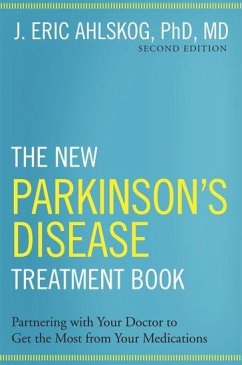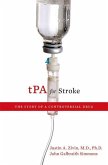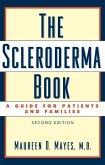J Eric Ahlskog MD
The New Parkinson's Disease Treatment Book
Partnering with Your Doctor to Get the Most from Your Medications
J Eric Ahlskog MD
The New Parkinson's Disease Treatment Book
Partnering with Your Doctor to Get the Most from Your Medications
- Gebundenes Buch
- Merkliste
- Auf die Merkliste
- Bewerten Bewerten
- Teilen
- Produkt teilen
- Produkterinnerung
- Produkterinnerung
This completely updated Second Edition represents a major revision with even more directed treatment guidelines, updated discussions relating to the possible cause(s), and assessments of the current and future role of surgical and innovative strategies.
Andere Kunden interessierten sich auch für
![When Parkinson's Strikes Early When Parkinson's Strikes Early]() Barbara Blake-Krebs M aWhen Parkinson's Strikes Early28,99 €
Barbara Blake-Krebs M aWhen Parkinson's Strikes Early28,99 €![Living Well with Parkinson's Living Well with Parkinson's]() Glenna AtwoodLiving Well with Parkinson's14,99 €
Glenna AtwoodLiving Well with Parkinson's14,99 €![tPA for Stroke tPA for Stroke]() Justin A ZivintPA for Stroke57,99 €
Justin A ZivintPA for Stroke57,99 €![The London Lupus Centre, Book of Lupus: A Patients' Guide The London Lupus Centre, Book of Lupus: A Patients' Guide]() Graham HughesThe London Lupus Centre, Book of Lupus: A Patients' Guide41,99 €
Graham HughesThe London Lupus Centre, Book of Lupus: A Patients' Guide41,99 €![The Birth Book The Birth Book]() William SearsThe Birth Book17,99 €
William SearsThe Birth Book17,99 €![The Scleroderma Book The Scleroderma Book]() Maureen D. MayesThe Scleroderma Book34,99 €
Maureen D. MayesThe Scleroderma Book34,99 €![Hashimoto's Food Pharmacology Hashimoto's Food Pharmacology]() Wentz, Izabella, PharmD.Hashimoto's Food Pharmacology29,99 €
Wentz, Izabella, PharmD.Hashimoto's Food Pharmacology29,99 €-
-
-
This completely updated Second Edition represents a major revision with even more directed treatment guidelines, updated discussions relating to the possible cause(s), and assessments of the current and future role of surgical and innovative strategies.
Hinweis: Dieser Artikel kann nur an eine deutsche Lieferadresse ausgeliefert werden.
Hinweis: Dieser Artikel kann nur an eine deutsche Lieferadresse ausgeliefert werden.
Produktdetails
- Produktdetails
- Verlag: Hurst & Co.
- 2nd Revised edition
- Seitenzahl: 544
- Erscheinungstermin: 1. September 2015
- Englisch
- Abmessung: 241mm x 163mm x 39mm
- Gewicht: 932g
- ISBN-13: 9780190231866
- ISBN-10: 0190231866
- Artikelnr.: 47862992
- Herstellerkennzeichnung
- Libri GmbH
- Europaallee 1
- 36244 Bad Hersfeld
- gpsr@libri.de
- Verlag: Hurst & Co.
- 2nd Revised edition
- Seitenzahl: 544
- Erscheinungstermin: 1. September 2015
- Englisch
- Abmessung: 241mm x 163mm x 39mm
- Gewicht: 932g
- ISBN-13: 9780190231866
- ISBN-10: 0190231866
- Artikelnr.: 47862992
- Herstellerkennzeichnung
- Libri GmbH
- Europaallee 1
- 36244 Bad Hersfeld
- gpsr@libri.de
J. Eric Ahlskog, Ph.D., M.D., is Professor of Neurology at the Mayo Medical School, and Chair of the Mayo Section of Movement Disorders, Mayo Clinic, Rochester, Minnesota. Widely considered to be a leading authority on this disorder, he has more than 30 years of experience treating people with Parkinson's Disease, both in the clinic as a full-time, patient-seeing neurologist, and as a clinical-investigator responsible for PD treatment protocols.
* Acknowledgments
* 1. Background
* Part I. Basic Facts about the Brain and Parkinson's Disease
* 2. Primer on the Brain
* 3. Parkinson's Disease: Changes in the Brain and Beyond
* Part II. Parkinson's Disease: Diagnosis and Prognosis
* 4. How do I Know If I Have Parkinson's Disease?
* 5. Prognosis
* Part III.
* 6. Conditions Mistaken for Parkinson's Disease
* 7. Testing
* Part IV. The Cause and Progression of Parkinson's Disease
* 8. Clues to the Cause(s): Genes, Environment
* 9. Drugs or Strategies to Slow Parkinson's Disease Progression?
* Part V. The Movement Problems of Parkinson's Disease: Medication
Rationale and Choices
* 10. Medications for Movement Problems (Gait, Tremor, Slowness):
Background and Rationale
* 11. Starting Medical Treatment of Parkinson's Disease Movement
Problems
* Part VI. Beginning Treatment of Parkinson's Disease: Medication
Guidelines
* 12. Starting Levodopa Treatment
* 13. Starting Dopamine Agonist Treatment
* 14. Refractory Tremor Syndromes: "Medications Don't Help My Tremor! "
* Part VII. The Early Years on Medications
* 15. The First Few Years on Carbidopa/Levodopa Treatment
* 16. The Early Years of Parkinson's Disease If Started on Other Drugs
* Part VIII. Later Medication Inconsistency: Motor Fluctuations and
Dyskinesias
* 17. Later-Developing Movement Problems: Motor Fluctuations and
Dyskinesias Treated with Levodopa Adjustments
* 18. Supplemental Drugs for Motor Fluctuations and Dyskinesias
* Part IX. Other Treatment Problems: Not Just a Movement Disorder
* 19. Subjective Parkinson's Disease Symptoms Due to Dopamine
Deficiency
* 20. Sleep Problems: Insomnia, Daytime Sleepiness, and Nighttime
Disruptions
* 21. Orthostatic Hypotension and Other Causes of Dizziness
* 22. Depression
* 23. Thinking, Memory, and Dementia
* 24. Hallucinations, Paranoia, Delusions, and Problematic Compulsive
Behaviors
* 25. Problems with Swallowing, Saliva, and Speaking
* 26. Managing Digestive Problems and Constipation
* 27. Urinary Symptoms
* 28. Sexual Dysfunction, Estrogen, and Menstrual cycles
* 29. Other Treatment Problems: Swelling, Skin rashes, and Visual
symptoms
* Part X. Nutrition, Exercise, Work, and Family
* 30. Diets, Vitamins, Nutrition, Osteoporosis
* 31. Exercise, Physical Medicine, and Physical Therapy
* 32. Family, Friends, the Workplace, and Caregivers
* Part XI. Surgery and Procedures for Parkinson's Disease: Present and
Future
* 33. Deep Brain Stimulation (DBS) and Other Brain Surgery for
Parkinson's Disease
* 34. Experimental Treatments: Fetal and Stem Cell Implantation;
Neurotrophic Hormone and Gene Therapy; Vaccines and Immunotherapy
* Part XII. Parkinson's Disease Information Services
* 35. Support and advocacy groups; the Internet
* Glossary
* Index
* 1. Background
* Part I. Basic Facts about the Brain and Parkinson's Disease
* 2. Primer on the Brain
* 3. Parkinson's Disease: Changes in the Brain and Beyond
* Part II. Parkinson's Disease: Diagnosis and Prognosis
* 4. How do I Know If I Have Parkinson's Disease?
* 5. Prognosis
* Part III.
* 6. Conditions Mistaken for Parkinson's Disease
* 7. Testing
* Part IV. The Cause and Progression of Parkinson's Disease
* 8. Clues to the Cause(s): Genes, Environment
* 9. Drugs or Strategies to Slow Parkinson's Disease Progression?
* Part V. The Movement Problems of Parkinson's Disease: Medication
Rationale and Choices
* 10. Medications for Movement Problems (Gait, Tremor, Slowness):
Background and Rationale
* 11. Starting Medical Treatment of Parkinson's Disease Movement
Problems
* Part VI. Beginning Treatment of Parkinson's Disease: Medication
Guidelines
* 12. Starting Levodopa Treatment
* 13. Starting Dopamine Agonist Treatment
* 14. Refractory Tremor Syndromes: "Medications Don't Help My Tremor! "
* Part VII. The Early Years on Medications
* 15. The First Few Years on Carbidopa/Levodopa Treatment
* 16. The Early Years of Parkinson's Disease If Started on Other Drugs
* Part VIII. Later Medication Inconsistency: Motor Fluctuations and
Dyskinesias
* 17. Later-Developing Movement Problems: Motor Fluctuations and
Dyskinesias Treated with Levodopa Adjustments
* 18. Supplemental Drugs for Motor Fluctuations and Dyskinesias
* Part IX. Other Treatment Problems: Not Just a Movement Disorder
* 19. Subjective Parkinson's Disease Symptoms Due to Dopamine
Deficiency
* 20. Sleep Problems: Insomnia, Daytime Sleepiness, and Nighttime
Disruptions
* 21. Orthostatic Hypotension and Other Causes of Dizziness
* 22. Depression
* 23. Thinking, Memory, and Dementia
* 24. Hallucinations, Paranoia, Delusions, and Problematic Compulsive
Behaviors
* 25. Problems with Swallowing, Saliva, and Speaking
* 26. Managing Digestive Problems and Constipation
* 27. Urinary Symptoms
* 28. Sexual Dysfunction, Estrogen, and Menstrual cycles
* 29. Other Treatment Problems: Swelling, Skin rashes, and Visual
symptoms
* Part X. Nutrition, Exercise, Work, and Family
* 30. Diets, Vitamins, Nutrition, Osteoporosis
* 31. Exercise, Physical Medicine, and Physical Therapy
* 32. Family, Friends, the Workplace, and Caregivers
* Part XI. Surgery and Procedures for Parkinson's Disease: Present and
Future
* 33. Deep Brain Stimulation (DBS) and Other Brain Surgery for
Parkinson's Disease
* 34. Experimental Treatments: Fetal and Stem Cell Implantation;
Neurotrophic Hormone and Gene Therapy; Vaccines and Immunotherapy
* Part XII. Parkinson's Disease Information Services
* 35. Support and advocacy groups; the Internet
* Glossary
* Index
* Acknowledgments
* 1. Background
* Part I. Basic Facts about the Brain and Parkinson's Disease
* 2. Primer on the Brain
* 3. Parkinson's Disease: Changes in the Brain and Beyond
* Part II. Parkinson's Disease: Diagnosis and Prognosis
* 4. How do I Know If I Have Parkinson's Disease?
* 5. Prognosis
* Part III.
* 6. Conditions Mistaken for Parkinson's Disease
* 7. Testing
* Part IV. The Cause and Progression of Parkinson's Disease
* 8. Clues to the Cause(s): Genes, Environment
* 9. Drugs or Strategies to Slow Parkinson's Disease Progression?
* Part V. The Movement Problems of Parkinson's Disease: Medication
Rationale and Choices
* 10. Medications for Movement Problems (Gait, Tremor, Slowness):
Background and Rationale
* 11. Starting Medical Treatment of Parkinson's Disease Movement
Problems
* Part VI. Beginning Treatment of Parkinson's Disease: Medication
Guidelines
* 12. Starting Levodopa Treatment
* 13. Starting Dopamine Agonist Treatment
* 14. Refractory Tremor Syndromes: "Medications Don't Help My Tremor! "
* Part VII. The Early Years on Medications
* 15. The First Few Years on Carbidopa/Levodopa Treatment
* 16. The Early Years of Parkinson's Disease If Started on Other Drugs
* Part VIII. Later Medication Inconsistency: Motor Fluctuations and
Dyskinesias
* 17. Later-Developing Movement Problems: Motor Fluctuations and
Dyskinesias Treated with Levodopa Adjustments
* 18. Supplemental Drugs for Motor Fluctuations and Dyskinesias
* Part IX. Other Treatment Problems: Not Just a Movement Disorder
* 19. Subjective Parkinson's Disease Symptoms Due to Dopamine
Deficiency
* 20. Sleep Problems: Insomnia, Daytime Sleepiness, and Nighttime
Disruptions
* 21. Orthostatic Hypotension and Other Causes of Dizziness
* 22. Depression
* 23. Thinking, Memory, and Dementia
* 24. Hallucinations, Paranoia, Delusions, and Problematic Compulsive
Behaviors
* 25. Problems with Swallowing, Saliva, and Speaking
* 26. Managing Digestive Problems and Constipation
* 27. Urinary Symptoms
* 28. Sexual Dysfunction, Estrogen, and Menstrual cycles
* 29. Other Treatment Problems: Swelling, Skin rashes, and Visual
symptoms
* Part X. Nutrition, Exercise, Work, and Family
* 30. Diets, Vitamins, Nutrition, Osteoporosis
* 31. Exercise, Physical Medicine, and Physical Therapy
* 32. Family, Friends, the Workplace, and Caregivers
* Part XI. Surgery and Procedures for Parkinson's Disease: Present and
Future
* 33. Deep Brain Stimulation (DBS) and Other Brain Surgery for
Parkinson's Disease
* 34. Experimental Treatments: Fetal and Stem Cell Implantation;
Neurotrophic Hormone and Gene Therapy; Vaccines and Immunotherapy
* Part XII. Parkinson's Disease Information Services
* 35. Support and advocacy groups; the Internet
* Glossary
* Index
* 1. Background
* Part I. Basic Facts about the Brain and Parkinson's Disease
* 2. Primer on the Brain
* 3. Parkinson's Disease: Changes in the Brain and Beyond
* Part II. Parkinson's Disease: Diagnosis and Prognosis
* 4. How do I Know If I Have Parkinson's Disease?
* 5. Prognosis
* Part III.
* 6. Conditions Mistaken for Parkinson's Disease
* 7. Testing
* Part IV. The Cause and Progression of Parkinson's Disease
* 8. Clues to the Cause(s): Genes, Environment
* 9. Drugs or Strategies to Slow Parkinson's Disease Progression?
* Part V. The Movement Problems of Parkinson's Disease: Medication
Rationale and Choices
* 10. Medications for Movement Problems (Gait, Tremor, Slowness):
Background and Rationale
* 11. Starting Medical Treatment of Parkinson's Disease Movement
Problems
* Part VI. Beginning Treatment of Parkinson's Disease: Medication
Guidelines
* 12. Starting Levodopa Treatment
* 13. Starting Dopamine Agonist Treatment
* 14. Refractory Tremor Syndromes: "Medications Don't Help My Tremor! "
* Part VII. The Early Years on Medications
* 15. The First Few Years on Carbidopa/Levodopa Treatment
* 16. The Early Years of Parkinson's Disease If Started on Other Drugs
* Part VIII. Later Medication Inconsistency: Motor Fluctuations and
Dyskinesias
* 17. Later-Developing Movement Problems: Motor Fluctuations and
Dyskinesias Treated with Levodopa Adjustments
* 18. Supplemental Drugs for Motor Fluctuations and Dyskinesias
* Part IX. Other Treatment Problems: Not Just a Movement Disorder
* 19. Subjective Parkinson's Disease Symptoms Due to Dopamine
Deficiency
* 20. Sleep Problems: Insomnia, Daytime Sleepiness, and Nighttime
Disruptions
* 21. Orthostatic Hypotension and Other Causes of Dizziness
* 22. Depression
* 23. Thinking, Memory, and Dementia
* 24. Hallucinations, Paranoia, Delusions, and Problematic Compulsive
Behaviors
* 25. Problems with Swallowing, Saliva, and Speaking
* 26. Managing Digestive Problems and Constipation
* 27. Urinary Symptoms
* 28. Sexual Dysfunction, Estrogen, and Menstrual cycles
* 29. Other Treatment Problems: Swelling, Skin rashes, and Visual
symptoms
* Part X. Nutrition, Exercise, Work, and Family
* 30. Diets, Vitamins, Nutrition, Osteoporosis
* 31. Exercise, Physical Medicine, and Physical Therapy
* 32. Family, Friends, the Workplace, and Caregivers
* Part XI. Surgery and Procedures for Parkinson's Disease: Present and
Future
* 33. Deep Brain Stimulation (DBS) and Other Brain Surgery for
Parkinson's Disease
* 34. Experimental Treatments: Fetal and Stem Cell Implantation;
Neurotrophic Hormone and Gene Therapy; Vaccines and Immunotherapy
* Part XII. Parkinson's Disease Information Services
* 35. Support and advocacy groups; the Internet
* Glossary
* Index








